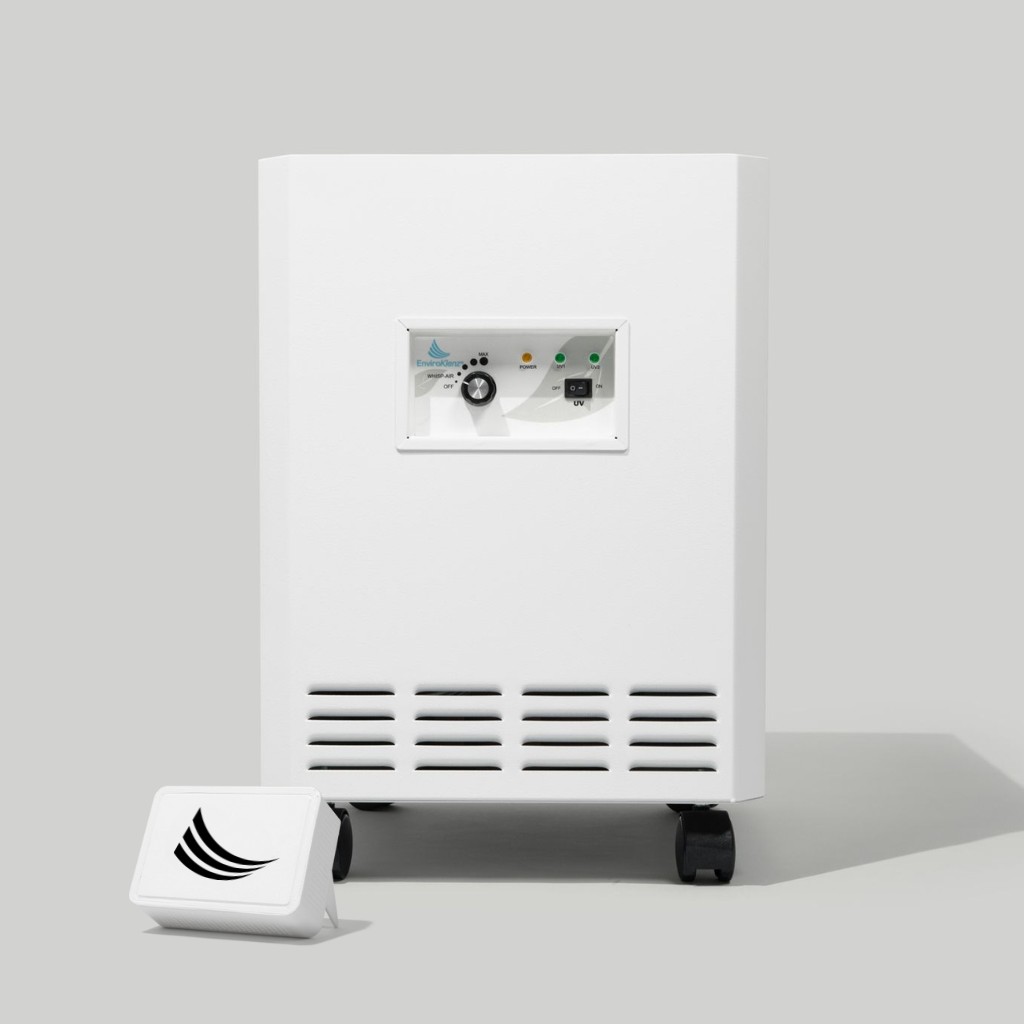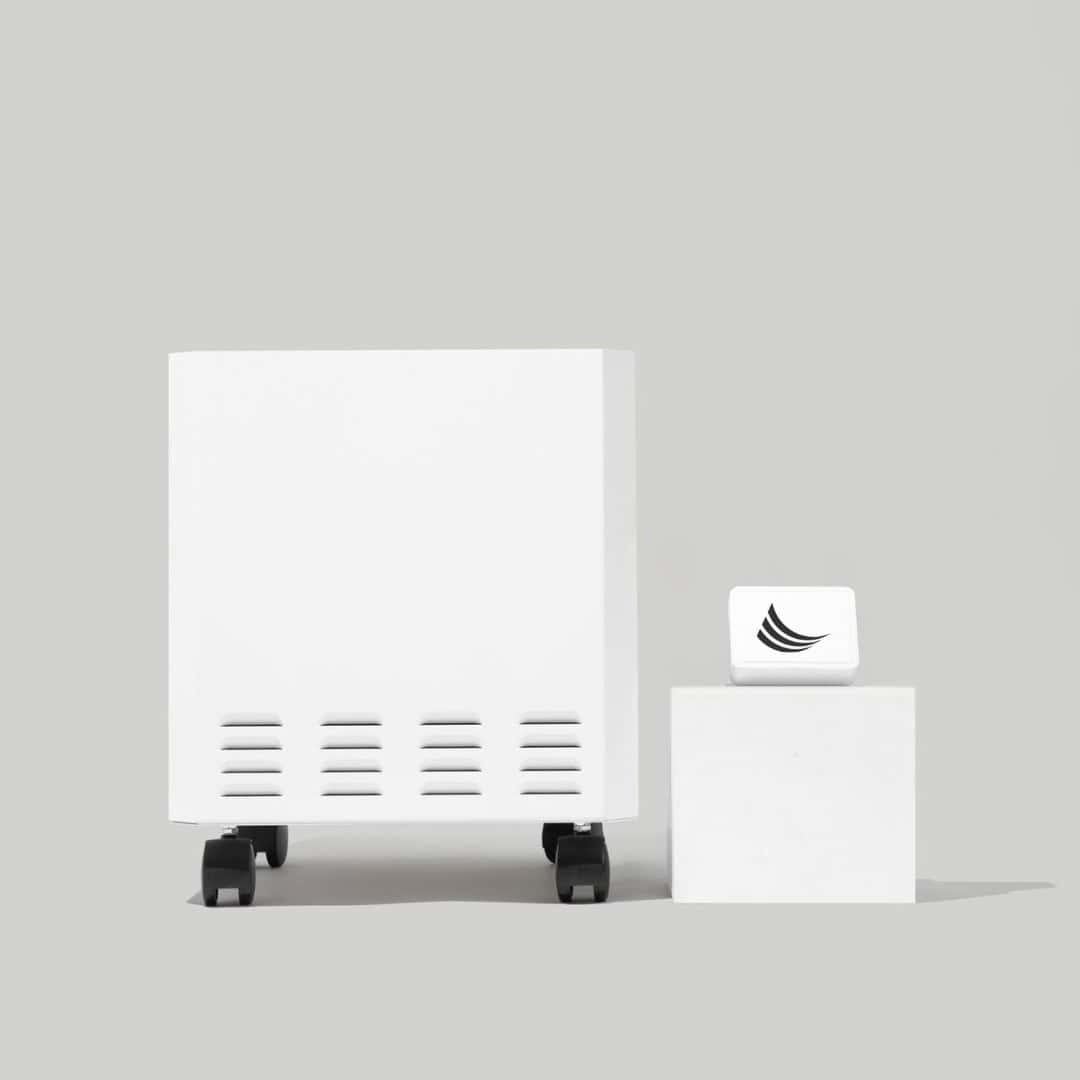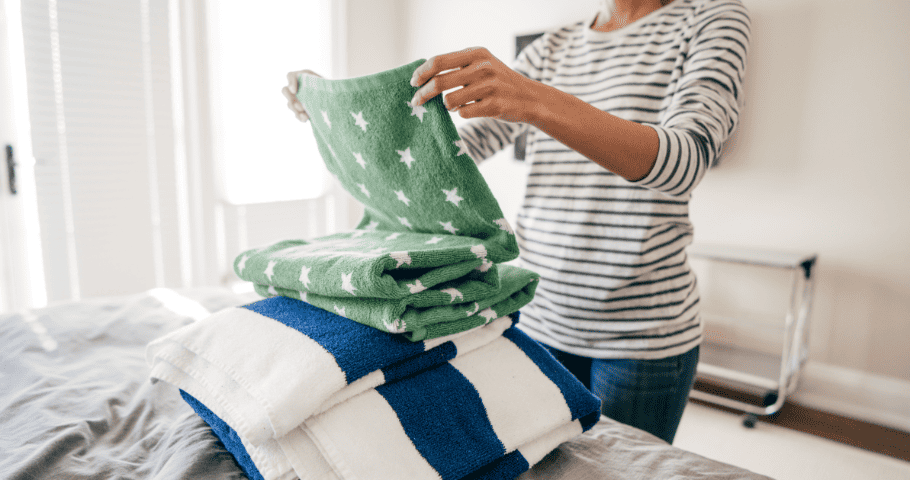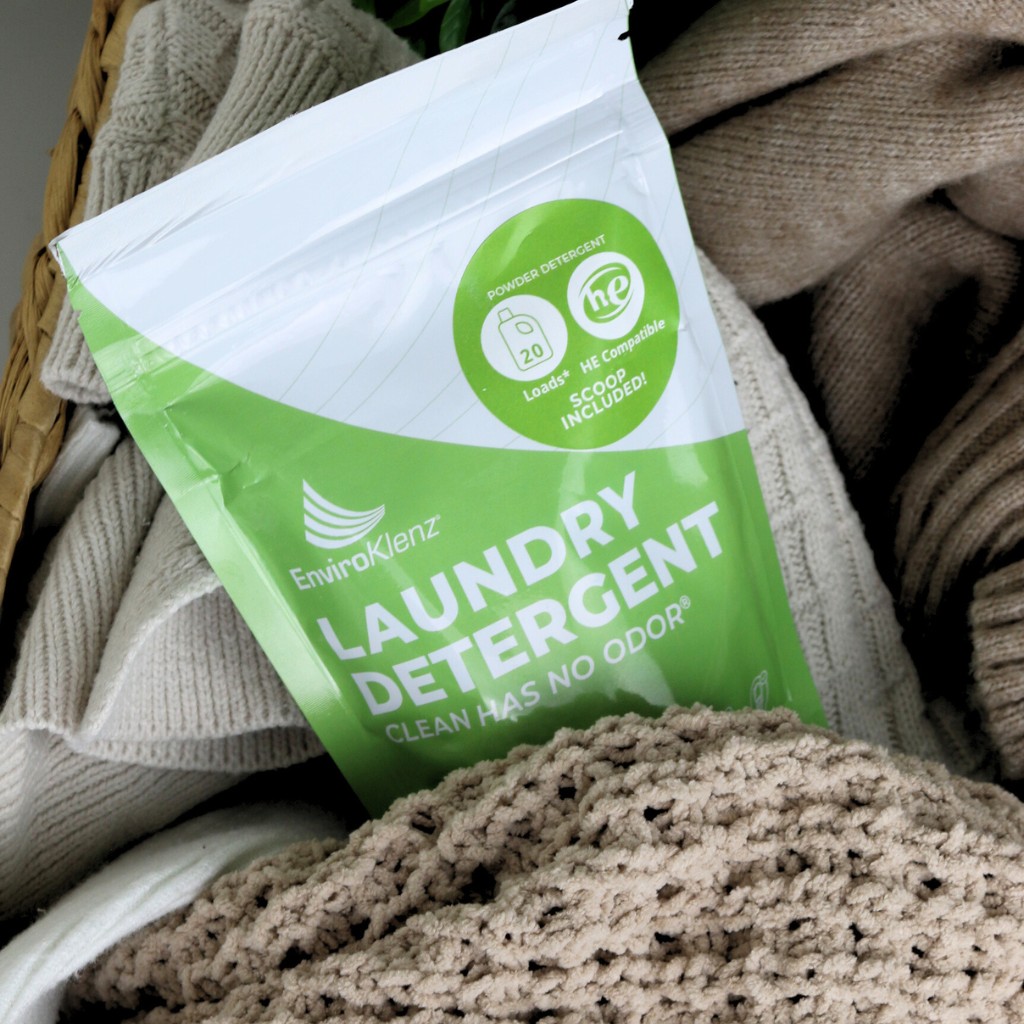No one likes using towels that smell after washing. It is very disconcerting to walk out of a cozy shower or a bath smelling all fresh to be hit by the sour smell emanating from your bath towel. It’s worse if you have visitors that you offered your ‘fresh towels’ thinking you could learn a thing or two about freshness.
Let’s look at how the conditions under which the towels are used make them stinky in ways that can’t always be completely eradicated through ordinary laundry. We will learn how to handle towel smell after washing and how to prevent it.
What Makes Towels Smell After Washing?
There are two broad categories of smelly towel odors: the musty smell of a damp towel and the chemical odor of some new towels.
The chemical odor is typically dye from the manufacturing process and fades away with each subsequent wash. It is good practice to wash chemically processed items before use. This reduces the potency of the smell before the first use and loosens towel fibers.
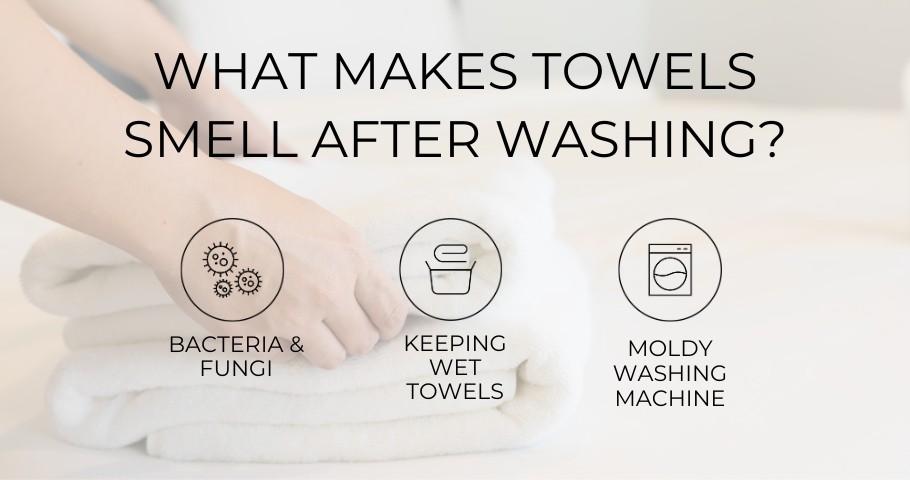
The Accumulation of Bacteria and Fungi
We are perpetually covered with bacteria whose prime food includes dead skin, sweat, hairs and body oils. They thrive in hot and damp spaces, and the towel provides sufficient crevices for them to hide.
The smell comes from bacteria breaking down these products—which is technically rotting them— and breeding. Mold and bacteria are equally capable of making towels smell.
Sometimes towels smell great when dry, but once they get wet, a musty smell lingers on your skin. It is more pronounced because our sense of smell is stronger for wet things than dry ones.
Keeping Wet Towels
Bacteria builds up in less than an hour with the right conditions. Bacteria will thrive if the towels stay too long in the washer or elsewhere before they are hung to dry or moved to the dryer. Your entire washer will have that sour smell, leaving you with no choice but to clean it before rewashing all the towels.
Moldy Washing Machine
If the empty washer retains a bad smell after the laundry is out, it must be cleaned and aired before the next wash cycle. Don’t load your towels in the washer if a musty odor emanates when you open it.
Sometimes the liquid fabric softener coats the strainer tub of the washing machine and gums up. This buildup becomes moldy and develops a bad smell which transfers to the laundry.
Why does my washcloth smell after one use?
Ever wondered why your washcloth smells musty or sour after just one use? You’re not alone! Many people experience towel odor after washing and using their towels just once, leaving them frustrated with what should be freshly laundered linens. So, why do my towels smell so quickly?
The answer lies in moisture retention and bacteria. Washcloths, much like towels, absorb a significant amount of water when used. If they aren’t thoroughly dried after use, the damp fabric creates the perfect breeding ground for bacteria and mildew, which can cause those unpleasant odors. This is especially common if washcloths are left bunched up in a damp space, like a bathroom, without proper airflow.
Additionally, using detergents that don’t fully eliminate odor-causing bacteria or leave behind residue can worsen the issue, as the buildup in the fabric encourages quicker bacterial growth. To tackle towel odor after washing, it’s essential to not only ensure your washcloths dry completely between uses but also to use a detergent that actively works to neutralize odors, rather than masking them.
What to Do When Towels Smell After Washing
Clean the Washing Machine
Scrape off the moldy fabric softener and thoroughly clean the washing machine before the next laundry cycle. Machines have different odor-removal instructions. Front loaders are different from top loaders in terms of where the grime accumulates and how it is removed. There are even separate deodorizers and cleaners for front-load washers and top-loaders.
You can try switching entirely from liquid fabric softeners if you discover liquid detergents are clogging your washer. There are specialized powder detergents that are equally capable of facilitating clean, odorless towels.
Run the washer on hot while it is empty for the longest cycle using either white vinegar or bleach in the water to clean off hidden grime and take care of residual smells.
Deep Clean All Smelly Towels
A stinky towel signals the need for extreme washing approaches. They should be soaked in hot water with regular washing detergents, oxygen or chlorine bleaches, and boosters like essential oils or vinegar. These agents should be used separately; their reaction produces potentially hazardous gases, worsening the smell.
Program the longest setting on your washing machine, but ensure that the towels are removed from the warm space of the washer as soon you are done and dried quickly to prevent any further bacterial breeding.
A cup of white vinegar can be added to the fabric softener compartment while rinsing or directly in the water if your washing machine doesn’t have that compartment. It is an acid capable of killing bacteria, mildew, and mold. It will also strip off remnants of soap and excess laundry detergent.
Do a second wash cycle with half a cup of baking soda to eliminate the residual vinegar smell. This also works as a fabric softener.
Dry the Towels Directly Out of the Water
Transfer the towels to the dryer immediately after the wash and set them too low until they dry out completely. Alternatively, hang them where there is free air circulation, ensuring no moisture pockets remain to harbor mildew.
Preventive Measures Against Musty Towel Odor
Here are some tips on how to keep your towels smelling fresh after washing them.
Dry Towels After Every Use
Avoid stacking damp towels or dropping them onto the floor or into a laundry hamper between uses. These are not only contact points for bacteria but also hamper the drying speed, allowing bacteria to breed. Towels should be spread out as much as possible for adequate air circulation.
A towel rack inside the house may suffice, but the best place to dry them is under the sun. In addition to its drying capabilities, sunlight is a great natural disinfectant. Towels should only be reused when completely dry.
Wash Towels Regularly
Wash the towels at least once weekly—more frequently during summer or whenever they are more frequently used—and let them dry out completely. You can wash them after every use if you have adequate replacements; remember that hot water and bleach are not good for colors. White towels will retain color, but the rest will run with each wash.
Don’t load too many towels in the machine at the same time; they won’t be exposed to sufficient water for the required wash and rinse. Keep in mind the fungi will hide between the garment’s pores, where they are harder to reach. Don’t wash more than three at the same time.
Clean the Washer Regularly
For a domestic washing machine, at least once a month should do the trick, or whenever there are traces of that mildew smell. Check if its door gaskets are clean, as they tend to be overlooked while harboring smelly mildew.
If your towels smell after washing, it might be that you aren’t drying them properly or aren’t washing them with the right detergents. Discover the best laundry detergent without chemicals to ensure you’re using the right detergent. The tips highlighted here should help you fix that issue. If all else fails, you might consider getting different types of towels.
EnviroKlenz® Medical Disclaimer:
“Any information that is provided on this website is not for the use by any commercial or personal entity without expressed written consent of the blog author. The material and statements illustrated within this blog are not intended to diagnose, treat, cure, or prevent any diseases or medical conditions. Nor does the author in any way guarantee or validate the validity, totality, or efficacy of any claims and will therefore not be held responsible for the content of any claims. Always consult your medical physician for any specific medical advice or recommendations.”




